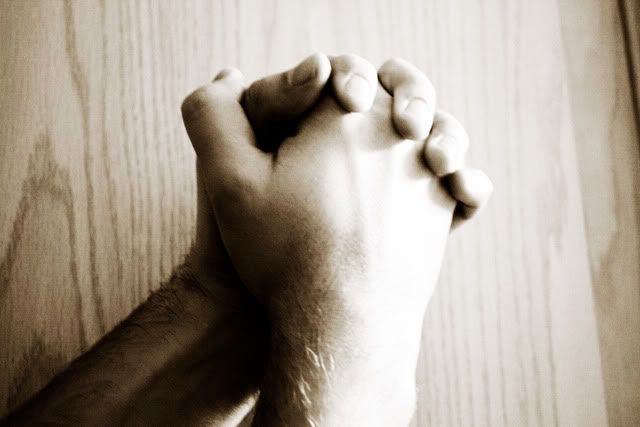As he went along, he saw a man blind from birth. His disciples asked him, "Rabbi, who sinned, this man or his parents, that he was born blind?"
"Neither this man nor his parents sinned," said Jesus, "but this happened so that the work of God might be displayed in his life. As long as it is day, we must do the work of him who sent me. Night is coming, when no one can work. While I am in the world, I am the light of the world."
With the news from Haiti bringing images of horrible suffering, people of faith have, as they have many times before, attempted to explain the reason God would allow (or commit) such an act of tragedy. The most infamous of these, recently, has been Pat Robertson's remarks that the Haitian people practice voodoo. Thus, God's judgment.
We're no strangers to this kind of talk. John Piper recently inferred that a tornado in downtown Minneapolis was God's judgment against the ordination of homosexuals. Many human maladies, from natural disasters, to disease, famine, and poverty, have been linked to some sort of cause-effect of sin and judgment. Our views have been shaped by the gods of Rome, who reigned from above with vengeance and a lightning bolt.
We have a God of salvation, whose wrath has been poured out on the cross. We exist in a paradox of God's love, surrounded by the effects of a tarnished creation.
We ask the same question of the disciples when tragedy happens. Who sinned to cause this disaster? Who can we blame for this?
Our eyes are closed to another purpose. Tragedy in our world can be used to show God's glory. We can go out to the blind, the impoverished, and the people in bondage, and show God's glory through helping them.
Having said this, he spit on the ground, made some mud with the saliva, and put it on the man's eyes. "Go," he told him, "wash in the Pool of Siloam" (this word means Sent). So the man went and washed, and came home seeing.
His neighbors and those who had formerly seen him begging asked, "Isn't this the same man who used to sit and beg?" Some claimed that he was.
Others said, "No, he only looks like him."
But he himself insisted, "I am the man."
"How then were your eyes opened?" they demanded.
He replied, "The man they call Jesus made some mud and put it on my eyes. He told me to go to Siloam and wash. So I went and washed, and then I could see."
"Where is this man?" they asked him.
"I don't know," he said.
We can be God's glory. We can go out to this tragedy, and instead of looking to know who caused it, we can bring healing. Healing that alters their lives, until they are unrecognizable from the person they were before. His glory can be seen through our healing work in the world.
Instead of asking, "Who sinned," we can instead ask how we can bless others.



